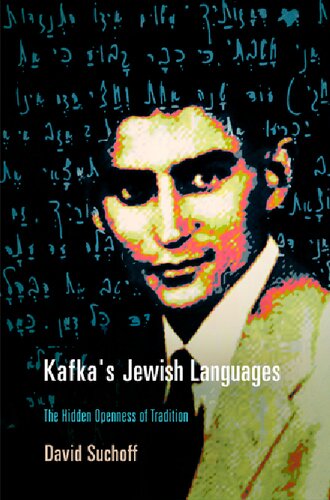

Most ebook files are in PDF format, so you can easily read them using various software such as Foxit Reader or directly on the Google Chrome browser.
Some ebook files are released by publishers in other formats such as .awz, .mobi, .epub, .fb2, etc. You may need to install specific software to read these formats on mobile/PC, such as Calibre.
Please read the tutorial at this link: https://ebookbell.com/faq
We offer FREE conversion to the popular formats you request; however, this may take some time. Therefore, right after payment, please email us, and we will try to provide the service as quickly as possible.
For some exceptional file formats or broken links (if any), please refrain from opening any disputes. Instead, email us first, and we will try to assist within a maximum of 6 hours.
EbookBell Team

4.8
34 reviewsAfter Franz Kafka died in 1924, his novels and short stories were published in ways that downplayed both their author's roots in Prague and his engagement with Jewish tradition and language, so as to secure their place in the German literary canon. Now, nearly a century after Kafka began to create his fictions, Germany, Israel, and the Czech Republic lay claim to his legacy. Kafka's Jewish Languages brings Kafka's stature as a specifically Jewish writer into focus.
David Suchoff explores the Yiddish and modern Hebrew that inspired Kafka's vision of tradition. Citing the Jewish sources crucial to the development of Kafka's style, the book demonstrates the intimate relationship between the author's Jewish modes of expression and the larger literary significance of his works. Suchoff shows how "The Judgment" evokes Yiddish as a language of comic curse and examines how Yiddish, African American, and culturally Zionist voices appear in the unfinished novel, Amerika. In his reading of The Trial, Suchoff highlights the black humor Kafka learned from the Yiddish theater, and he interprets The Castle in light of Kafka's involvement with the renewal of the Hebrew language. Finally, he uncovers the Yiddish and Hebrew meanings behind Kafka's "Josephine the Singer, or the Mouse-Folk" and considers the recent legal case in Tel Aviv over the possession of Kafka's missing manuscripts as a parable of the transnational meanings of his writing.